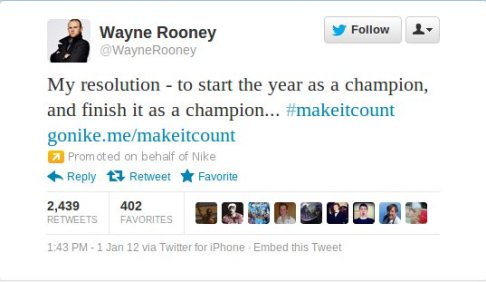When applying for a job
Posted: June 12, 2012 Filed under: Uncategorized | Tags: Facebook, LinkedIn 1 CommentThe Kernel ran an interesting piece on the state of the tech recruitment industry last week; one post highlighted some of the more questionable practices of recruiters. One of these ‘scams’ was adjusting candidates CVs which they shouldn’t do without getting the candidates permission, but I can understand why they might. I’ve spent a good portion of time over the last two weeks going over the applications for our open positions at Knowsis. The hiring process is not something I enjoy and something that could have be made easier by the candidates thinking a bit for themselves.
If you’re applying for jobs, especially those of you who are just about to graduate, I’d suggest you make sure you think about the following:
1. Filenames
Don’t call it cv.pdf (or resume.doc) – you are asking for it to get lost/overwritten at the first step in the process. You may only have one CV on your computer but your prospective employer has hundreds of them on theirs.
Make sure at the very least, the filename contains your full name and even better the position you’re applying for.
2. Covering Note
Include one. Tell the employer why you want to work for them, how you found the job, it will make you stand out. You’ll look less like someone who couldn’t be bothered and just fired off their standard CV that they send to everyone.
Make sure the covering letter is part of the same file as your CV. Having it as a separate file or only in the original email means it may get misplaced, forgotten about or ignored.
3. Tailor the CV for the job
As above, if you want to stand out make it look less like a standard CV that you send to everyone and more applicable for the position you are applying for. Make sure the most relevant information that the employer mentioned in the job description is highlighted.
4. Length
Dont make your CV too long. Two or three pages should be enough to get the message across. If you have gone over remove the things that aren’t necessary or less interesting. Don’t make the prospective employer sift through all of your summer jobs since you were 16, if they aren’t relevant leave them out. Some other points:
- Don’t use massive fonts.
- Don’t use excessive line spacing, gutters and margins
- Don’t include a photo that takes up 1/4 of a page
5. Add a Footer
Add a page number and your name to the bottom of every page. That way, if a page gets misplaced it’s easier to spot and doesn’t look like you disappeared without a trace for 10 years. It also means if a random page is found it’s easier to know where it came from without having to try and match up based on the formatting.
6. Hobbies
Unless it’s wholly relevant to the job, leave out the interests section. I honestly doubt that there are any employers would be sold on your penchant for ferret racing or samurai sword collecting.
7. Represent yourself on-line
If there are things you’ve left out of your CV following points 3 and 4, make sure they are still available online somewhere and include a link to it in your CV. There’s plenty of places you can create a professional profile such as LinkedIn which will allow you to maintain a full record of employment, recommendations and skills for anyone to see. In fact if you don’t know how to create a CV you can fill out all your details on LinkedIn and use their resume builder to automatically format a CV file for you
Developers, create yourselves a Github account, use it to show some of the interesting things you’ve written or any open source projects you’ve committed to.
If you’re working in another digital profession it’s also sensible to have a portfolio of your work available for employers to see.
8. Lock down your social networks
This is just general advice really but make sure that your Facebook profile is only visible to your friends. Prospective employers are now regularly checking Facebook and other social networks to see what their prospective candidates are like in real life and whilst some employers probably wouldn’t hold it against you many others probably will.
Anything Else?
If there are any bug bears you’ve experienced whilst hiring that I have missed out, add it into the comments and I’ll update the post


